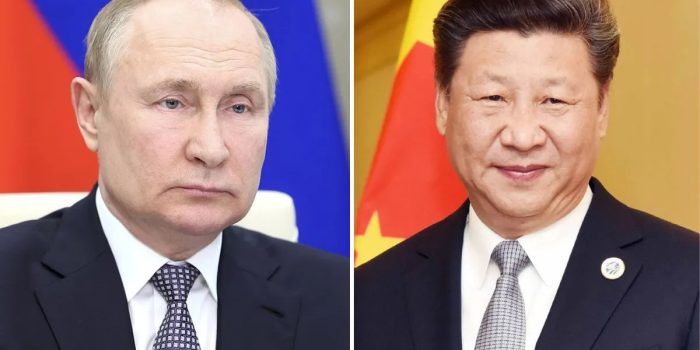In recent meetings, Russian and Chinese officials engaged in an in-depth discussion about the military applications of artificial intelligence (AI), as reported by the South China Morning Post. Despite the United States’ proposal for a framework on responsible technology use, both nations have chosen to pursue their own path regarding AI in military contexts.
AI encompasses the capacity of machines to perform tasks typically requiring human intelligence. While civilian applications of AI have flourished in recent years, ranging from image generation to language translation, its military potential is equally significant.

AI technology can be utilized for threat identification, intelligence gathering, cyber operations, and guiding unmanned combat vehicles. Furthermore, it is seen as a tool to assist military commanders in decision-making during conflicts or situations necessitating swift action.
Major global powers like the US, China, and Russia are investing heavily in AI for military purposes. However, there is a lack of consensus on an agreed-upon framework for its usage. Efforts have been made within the United Nations to address the issue, notably through discussions on Lethal Autonomous Weapons Systems (LAWS).
A recent UN resolution highlighted the risks posed by LAWS to global security and stability, emphasizing concerns about potential arms races and heightened conflict thresholds, particularly involving non-state actors.
The US has taken a proactive stance by spearheading a Political Declaration on the Responsible Military Use of Artificial Intelligence and Autonomy in 2023. However, this initiative has garnered support primarily from US allies and partners, with China and Russia abstaining.

Russian officials confirmed discussions on AI’s military applications but provided no specific details regarding participants or positions held. Additionally, Russia and China have agreed to coordinate within the Group of Government Experts (GGE) under the 1981 Convention on Conventional Weapons, facilitating bilateral and multilateral discussions on LAWS.
Notably, China’s statement on the discussions did not explicitly mention AI’s military applications but instead broadened the scope to include outer space and biosecurity. This aligns with China’s longstanding advocacy for a ban on autonomous weapon systems, even with AI improvements.
The collaboration between Russia and China suggests a divergence from the US-led declaration, indicating a preference for alternative frameworks. This divergence reflects differing perspectives on AI’s military implications and underscores the complexity of international efforts to regulate its use in warfare. As discussions progress, reconciling these divergent approaches will be crucial for shaping the future of AI in military contexts and ensuring global security.


